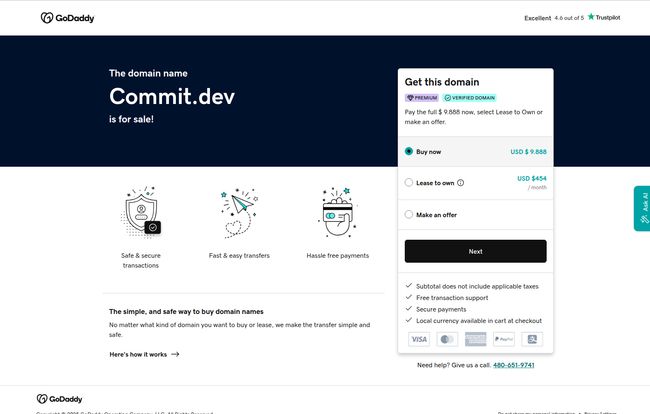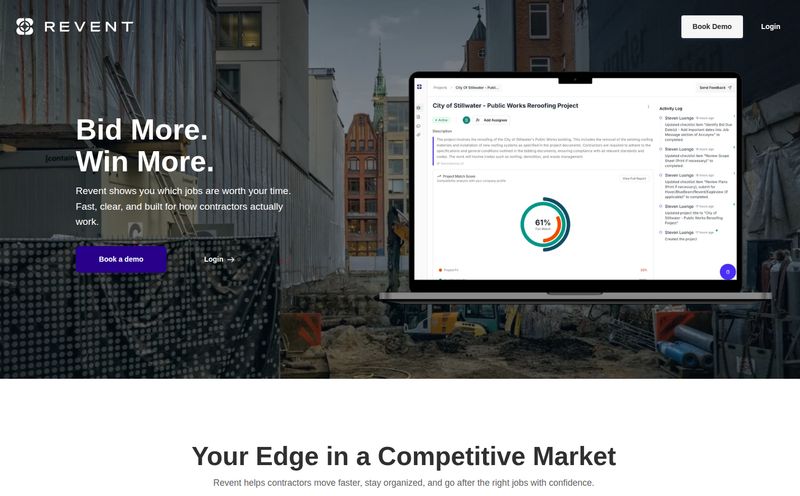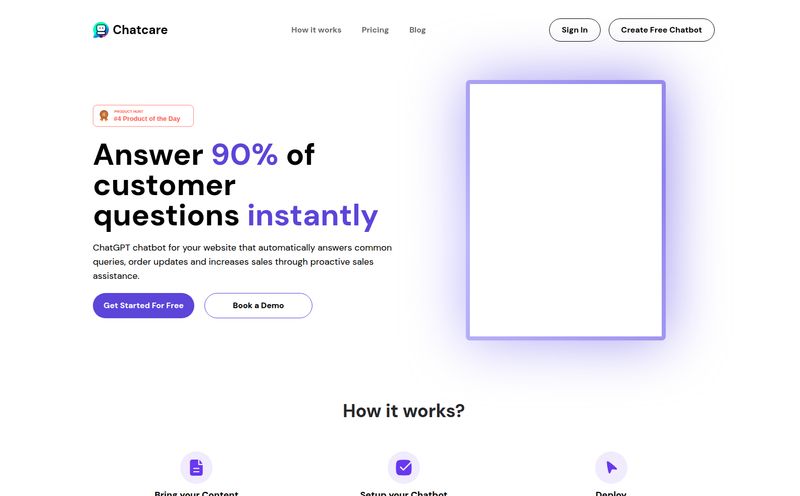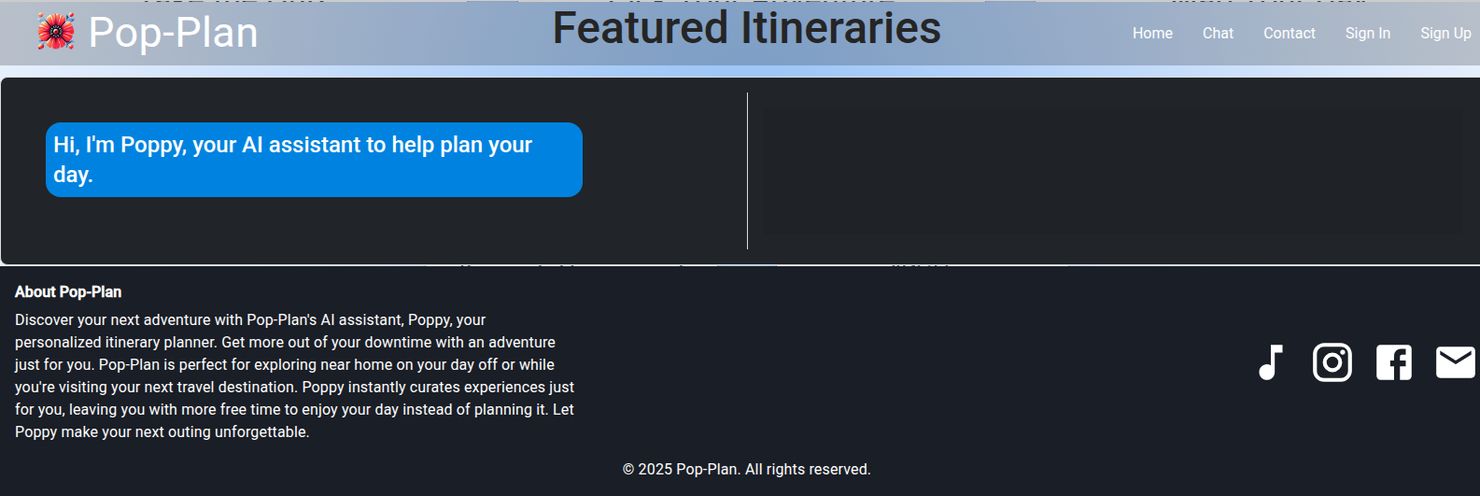I’ve been in the SEO and traffic game for a long time. You see trends come and go. You see tools rise like a phoenix and, sometimes, you see them… well, not. A few months back, a name started buzzing in some of the more niche developer circles I hang out in: Commit. The pitch was slick, futuristic, and hit on a pain point every single software engineer knows intimately. The soul-crushing grind of job hunting.
Commit wasn’t just another job board. Oh no. That would be too simple. This was pitched as your personal AI Talent Agent. A smart, tireless bot that would learn your skills, understand your career goals, and then go out and not just find the perfect startup jobs, but apply to them for you. It was supposed to be the dream, right? A career co-pilot for the ambitious startup engineer, freeing you up to do what you actually love: building cool stuff.
It sounded fantastic. Almost too good to be true. And as it turns out, maybe it was. Because when I went to check in on their progress recently, I was met with a digital tombstone. The domain, Commit.dev, is for sale on GoDaddy for a cool $9,888. Oof.
What Was Commit Supposed to Be?
Before we conduct a post-mortem, let's talk about the vision. Because the idea itself is brilliant. In an industry where the best engineers are constantly being poached and opportunities are everywhere, the biggest bottleneck is time and attention. Sorting through hundreds of listings on LinkedIn or AngelList is a job in itself.

Visit Commit
The AI Talent Agent Dream
The core of Commit was its AI. This wasn't just keyword matching. The promise was a deeper understanding of a developer's profile—your GitHub repos, your project history, maybe even your secret love for esoteric languages. It was supposed to be a digital consigliere, whispering in your ear about that pre-seed startup that needs a Rust developer just like you before it even hits the major job boards. It would then handle the tedious part: filling out those endless, repetitive application forms. Imagine waking up to find you’ve got two interviews lined up for jobs you’re actually excited about, all while you were sleeping. That was the dream Commit was selling.
More Than Just a Bot: The Community
The other half of the equation was the community. The founders seemed to get that a career isn’t just a series of jobs; it’s about the people you know and the things you build together. Commit aimed to be a professional network, a place for startup-minded engineers to connect, collaborate on side projects, and share war stories. In my experience, the strongest career moves often come from a recommendation from a friend, not a cold application. Building a community around their tool was a smart move, aiming to create a moat that other, more sterile platforms lack. It was a play to be less of a tool and more of a… guild.
The Features That Made Us Look Twice
Let's get into the nuts and bolts of what was on the table. It's one thing to have a grand vision, but it's another to have a feature set that makes people actually want to sign up. From what I gathered, the platform was built around a few key pillars.
The AI-powered job matching was the headliner, of course. But the automated application process was the real workhorse. It’s the feature that speaks directly to the exhaustion so many of us feel. Then you have the community aspect, providing a fertile ground for networking that could lead to opportunities the AI might even miss. The whole thing was hyper-focused on one specific, and very lucrative, niche: startup engineers. This focus is a good thing; it avoids the 'everything for everyone' trap that so many platforms fall into.
To be fair, it's good to look at both sides of the coin. Here’s a quick, honest breakdown of the potential highs and lows as I saw them:
| The Good Stuff (Pros) | The Potential Headaches (Cons) |
|---|---|
| AI-driven matching saves a ton of time and mental energy. | How does the AI actually work? The lack of transparency is a bit concerning. |
| Automated applications are a godsend for busy developers. | Handing over control of your applications to an AI feels… risky. What if it misrepresents you? |
| A dedicated community for startup engineers is great for networking. | As a beta program, it might have been buggy or had limited spots. |
The $9,888 Question
So, what gives? Why is a startup with such a seemingly killer idea now selling its own digital real estate? This is where we leave the land of press releases and enter the murky waters of speculation. But as someone who’s watched this space for years, I have a few educated guesses.
First, the tech is hard. Building an AI that can truly parse the nuances of a developer’s skill set and the subtle requirements of a job posting is a monumental task. It’s one that giants like Google and LinkedIn are still trying to perfect. Perhaps the team hit a wall they couldn't code their way around.
Second, money. Startups burn through cash like a bonfire. It’s entirely possible they just couldn't secure their next round of funding. A great idea doesn’t always equal a profitable business model, especially when you need to attract both engineers and paying companies to the platform—a classic and difficult two-sided market problem.
Or, maybe it's a pivot. They could be rebranding, moving to a new domain, and selling off the old one to recoup a few bucks. It’s a long shot, but it happens. For now, though, Commit.dev appears to be a ghost town.
The Bigger Picture: AI's March into Recruitment
The story of Commit, whatever the final chapter is, is a fantastic case study for the broader trend of AI in the hiring space. The dream it was chasing is still very much alive. Companies like Hired and Triplebyte have been using algorithms to match developers with companies for years, though perhaps with less of the “fully automated agent” flair that Commit promised.
We're in a fascinating, if slightly unnerving, period. AI can screen resumes in seconds, conduct initial interviews with chatbots, and analyze video interviews for sentiment. The efficiency gains are undeniable. But it also raises important questions. We've all heard the horror stories of biased algorithms that penalize candidates for unconventional backgrounds. The risk of creating a more homogenous, less interesting workforce is real. Losing hte human element entirely can strip the personality and intuition out of hiring—something I've always felt is a critical, unquantifiable part of building a great team.
Lessons from a Digital Ghost
Whether Commit rises from the ashes or not, its story offers a valuable lesson. For founders, it's a reminder that a killer idea and a hot market are only the beginning. Execution, funding, and frankly, a bit of luck are what separate the unicorns from the domain-for-sale pages. And for my fellow engineers, it’s a reminder to approach these new AI tools with a healthy dose of skepticism. They can be powerful allies, but they aren't a silver bullet. Your career is still your own, and the human connections you make will always be your most valuable asset.
Frequently Asked Questions
So, what exactly was Commit?
Commit was pitched as a professional network and AI-powered service for startup software engineers. Its main feature was an 'AI Talent Agent' designed to automatically find and apply for jobs that matched a developer's specific skills and career ambitions.
Why do you think the Commit.dev domain is for sale?
While there's no official word, it's highly likely the startup has ceased operations. This could be due to a number of common startup challenges, such as running out of funding, facing insurmountable technical hurdles with their AI, or failing to achieve product-market fit.
Are AI job-finding tools actually reliable?
They can be, but results vary. They are excellent for identifying opportunities you might miss and for saving time. However, they can sometimes lack the nuance to understand a perfect culture fit or a company's specific, unstated needs. I'd use them as a powerful search tool, not a complete replacement for your own judgement.
What are some alternatives to what Commit offered?
Platforms like Hired, Triplebyte, and even LinkedIn with its advanced filters and AI features offer similar job-matching services. For community, networks like Toptal (for freelancers) or specialized Slack and Discord channels remain invaluable.
Is it a good idea to let an AI apply to jobs for me?
It's a trade-off between convenience and control. For initial applications to a wide net of companies, it could be a huge time-saver. However, for your top-choice jobs, a personalized, human-crafted application will almost always be more effective. You risk the AI making a mistake or not representing you perfectly.
How can I protect my personal data on these AI platforms?
Always read the privacy policy. Understand what data they are collecting and how it's being used. Use unique passwords and be mindful of what information you share. Treat it like any other online service where you're sharing sensitive personal and professional information.
A Coda for an Ambitious Idea
So, we pour one out for Commit.dev. A great idea, a slick pitch, and a cautionary tale all rolled into one. It’s a stark reminder of how brutal the startup world can be. But the ambition behind it? That’s not going anywhere. The desire to automate the worst parts of job hunting and use technology to forge better career paths is stronger than ever. Someone else will pick up this torch. Maybe they’ll even buy the domain for $9,888 and give it another go. In the tech world, you never know.
Reference and Sources
- GoDaddy Listing for Commit.dev (Note: This link may become inactive if the domain is sold or the listing expires)
- Hired - A talent marketplace matching tech workers with companies.
- Triplebyte - A platform that offers technical assessments to help engineers showcase their skills to top companies.



